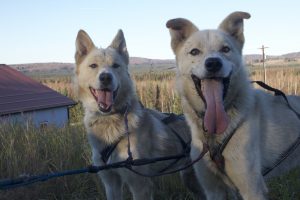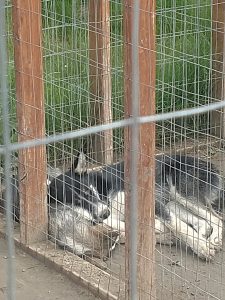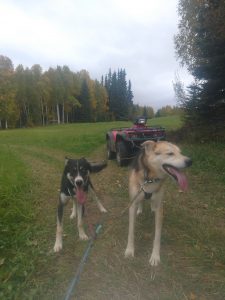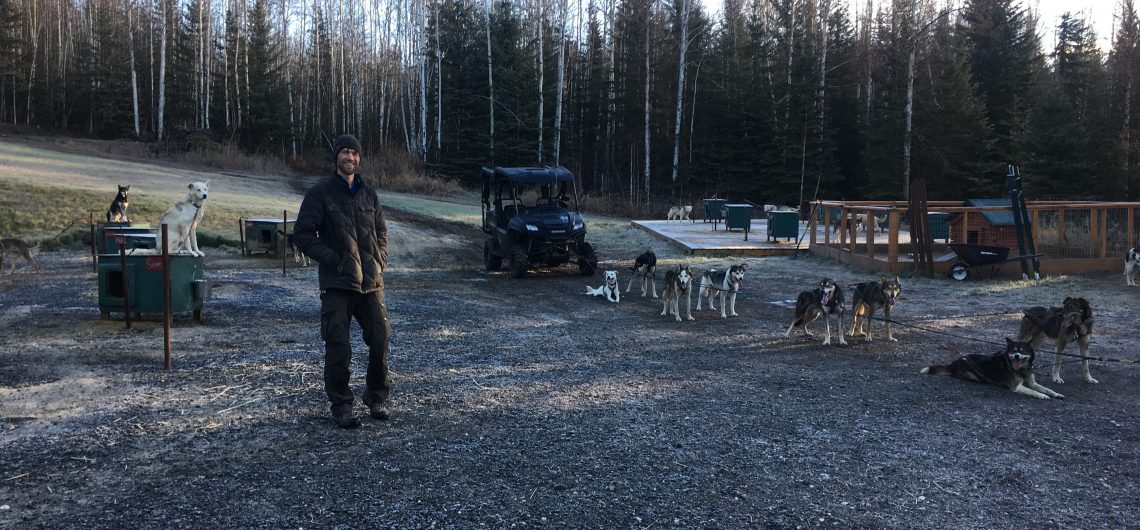Most pet dogs never do anything difficult. They lay around on the couch, bark at the mailman, and maybe chew up all your socks. Some lucky dogs get to go for a hike on the weekend. Most of their time is spent waiting for their owner to come home. This can make our world seem strange to outsiders. Our dogs have a job.
I don’t mean to say that we make them run. If a dog does not want to pull, I will not and could not force him or her to pull. The desire to pull is a result of thousands of years of selective breeding and codependence. They have a job in the same way that I have a job. The fact that we have to earn our keep by working does not mean we can’t enjoy our work.
What I mean is that these dogs have a responsibility, and they know it. They are part of a team, and a team will not function if its members do not take their positions seriously. Sled dogs have to pull, but they also have to cooperate with each other. Dogs that don’t like each other must put aside their differences in the name of the ultimate goal: the trail. Trails have their own personalities, and they can change from one day to the next. Sometimes they are fast and smooth, and other days they are deep, soft, and slow. Some have steep hills, wind, or even bare frozen ground.
The most amazing and remarkable experiences in my decade of running sled dogs have also been the most difficult. When we encounter adversity, a good sled dog puts his head down and drives harder. There is no command needed. When the trail gets hard, they get excited!
Hawk is a perfect example of this attitude. Most of our dogs come from genetic backgrounds focused on distance racing. Hawk and his brother Grouse are freight dogs, bred for strength and dependability. This big 60-pound boy adds a tremendous amount of power to a team, and the heavier the load, the happier he gets. Big dogs tend to prefer colder weather because their bodies have less surface area per pound to dissipate heat. When the thermometer drops to -20 or -30F, his excitement becomes palpable. He also gives great hugs!
Frog is our puppy-in-training. At 8 months old, he is only running a few miles each week. Puppies tend to lose their minds in excitement, and Frog is no exception. He always runs as hard as he possibly can, gets tangled up with his partner when we stop, and barks loudly even while running. Patience and repetition will gradually teach him to calm down a bit and pace himself. Once he has learned to control himself, he will start to join us on tours. This typically happens at around a year old, but each dog matures at a different speed. He grew up with his sister Mini, who is his opposite. While Frog is big and friendly, Mini is small and shy. Frog learned at a young age that he had to be gentle with his little sister, and this made him into a gentle dog in general.



Next time, we will check back in with Sol and introduce our retirees!

